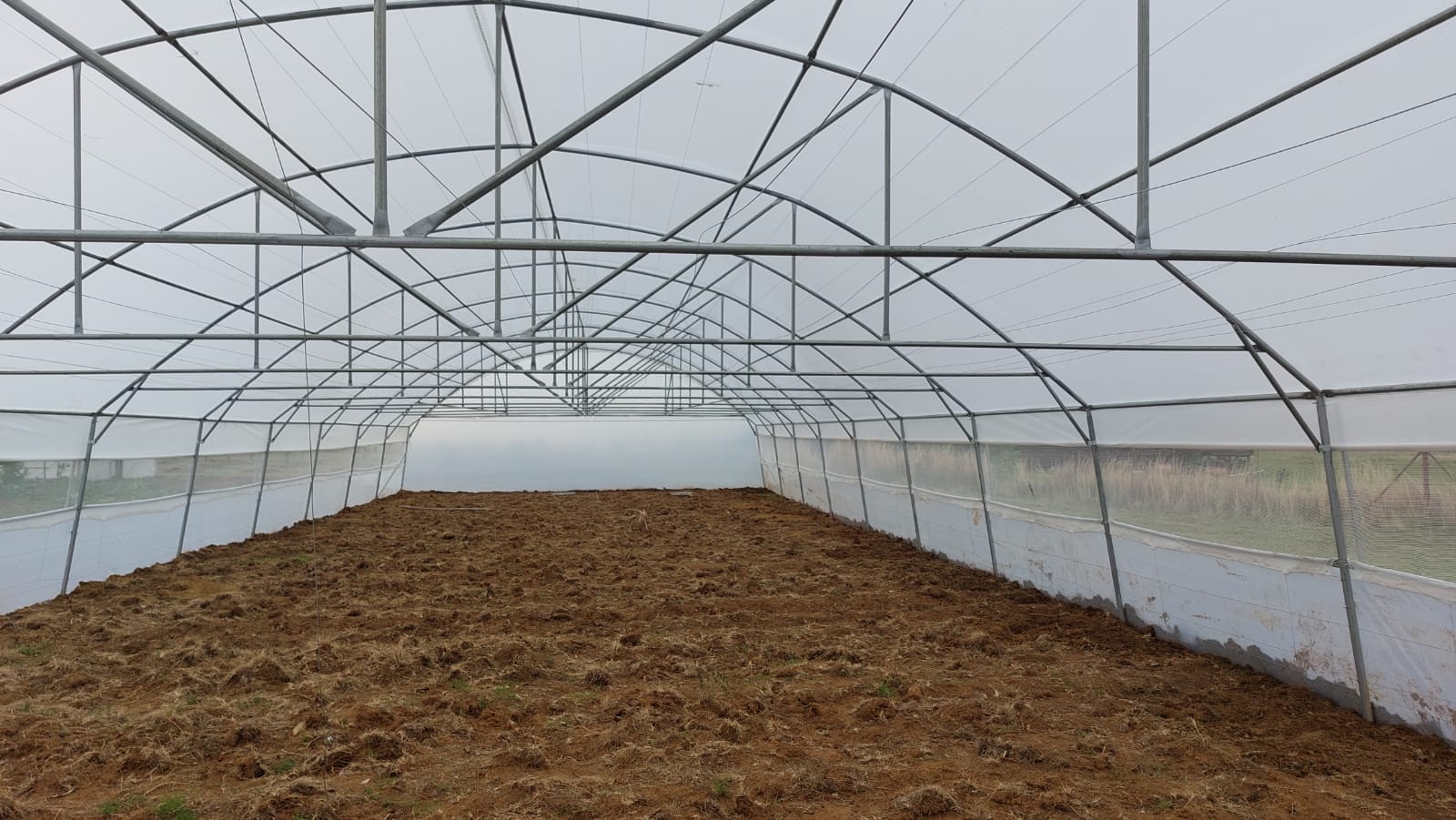
Dicla Tunnels
Types of tunnels
Dicla Standard Tunnels
Constructed from high-grade steel pipes and top-quality coverings, the tunnel includes two ventilation flaps, a single front door, and a 13mm crop support system—perfect for a wide variety of crops. Each tunnel is covered with 200-micron UV-treated greenhouse plastic, imported from Vatan Plastik in Turkey—renowned for its durability and performance under the harsh South African sun. For alternative needs, we also offer the option to cover the tunnel with shadenet.
Let Dicla help grow your farm with durable, efficient, and expertly engineered tunnel solutions.
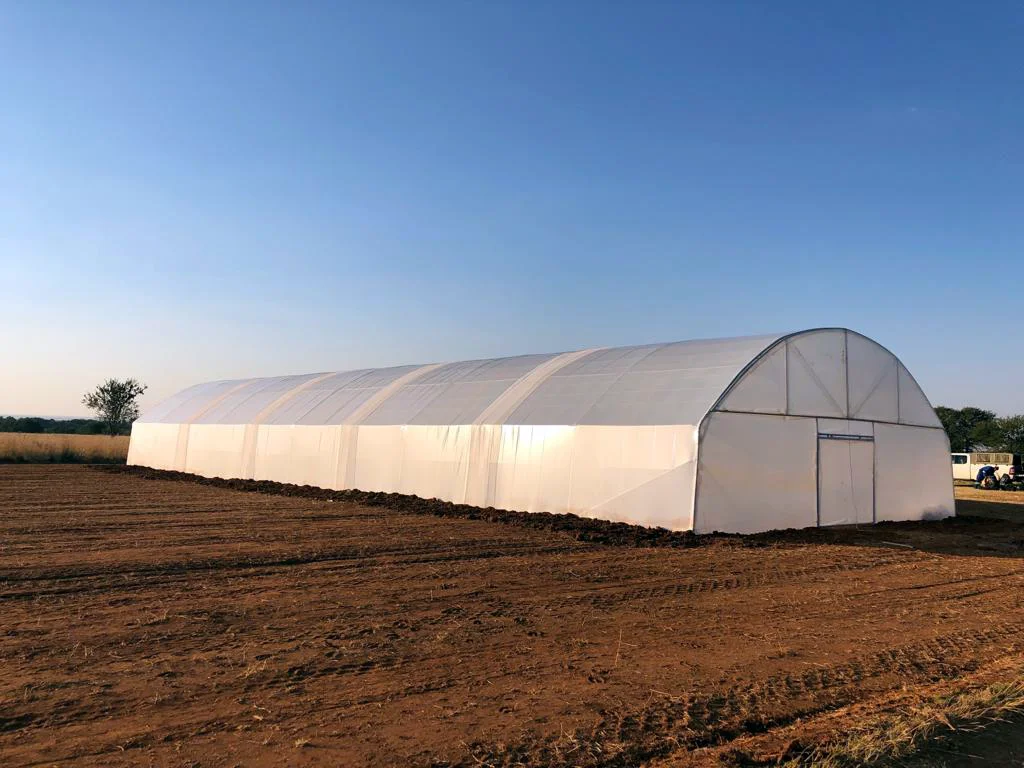
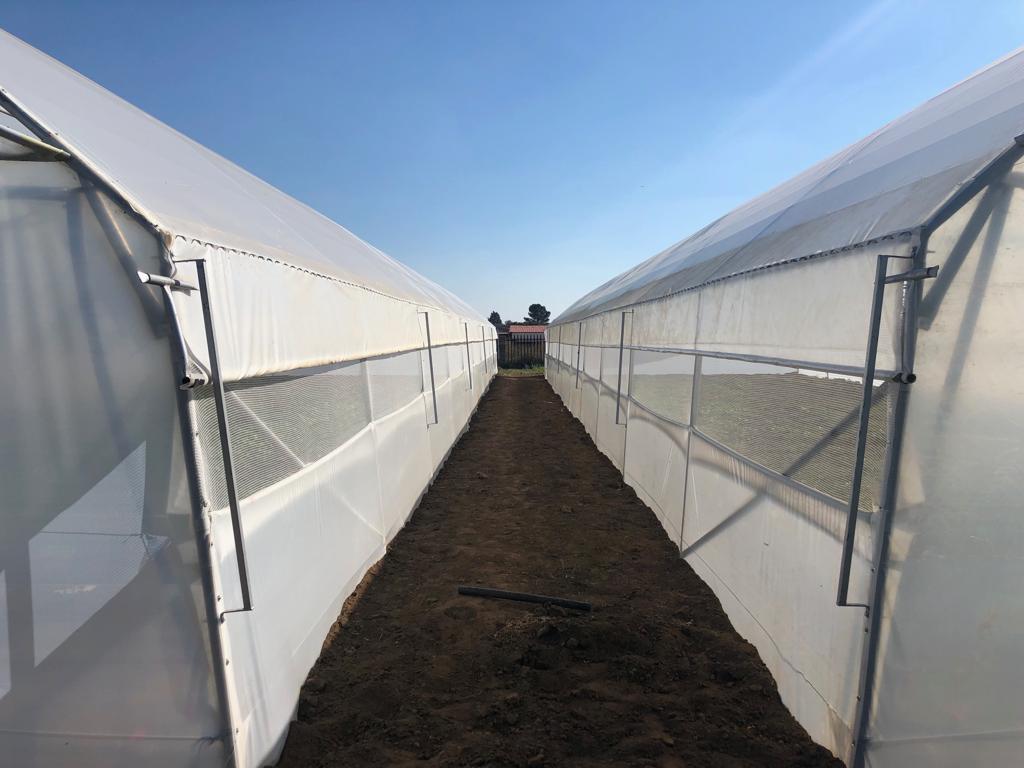
Dicla Roll-Up Tunnel
Dicla Hobby Tunnel
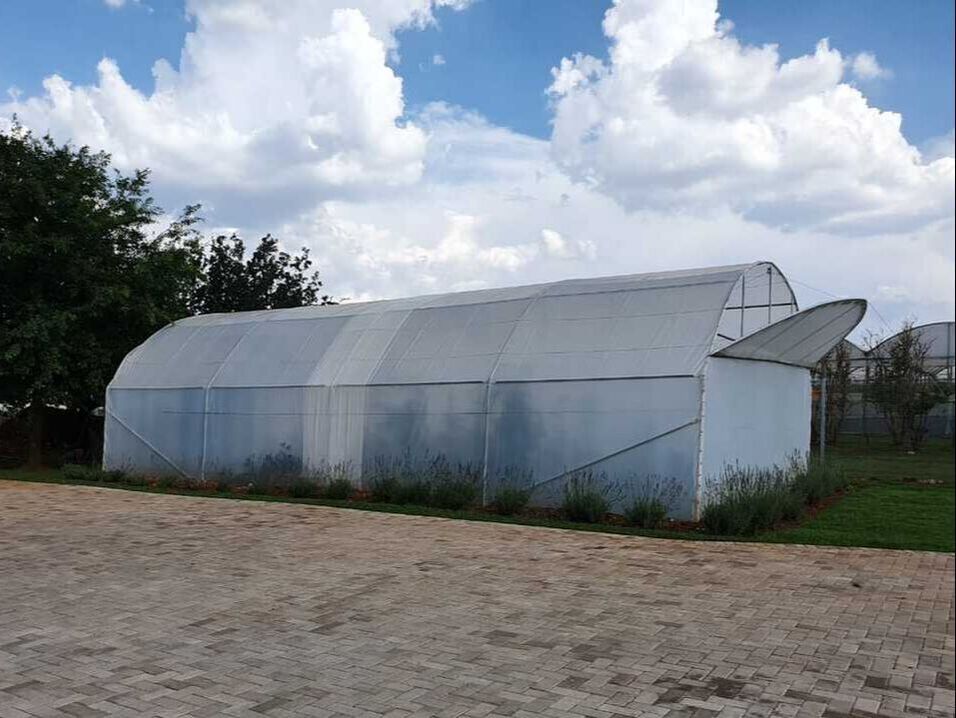
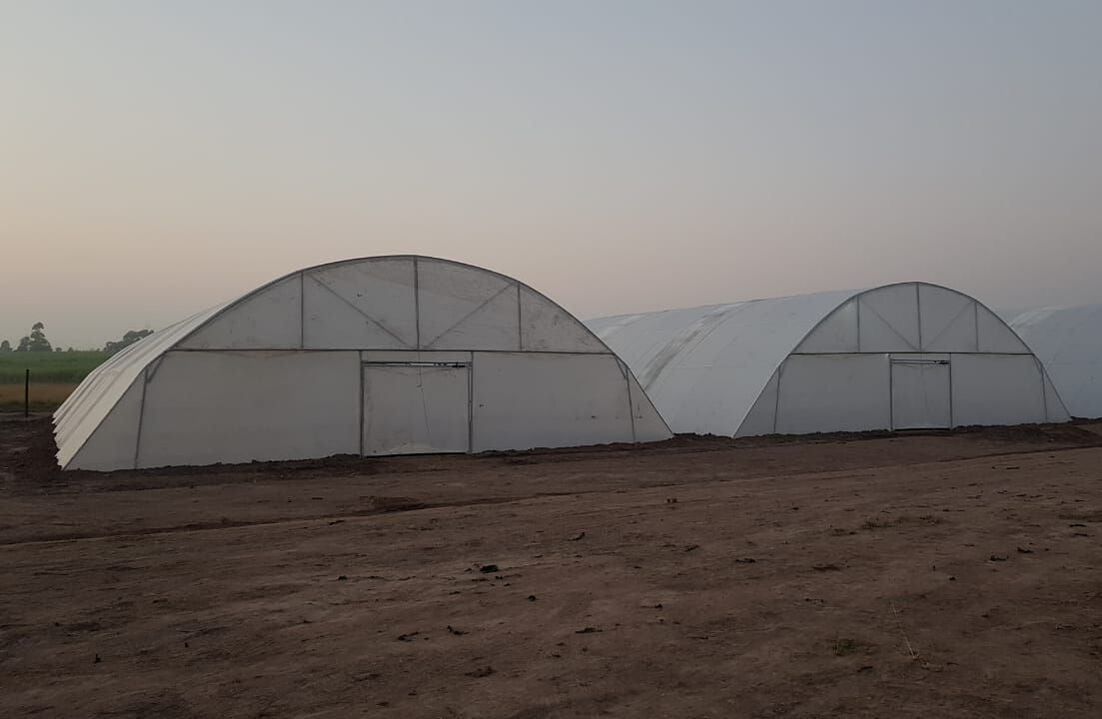
Dicla Wind-Support Tunnels
Dicla Multi-span Structure
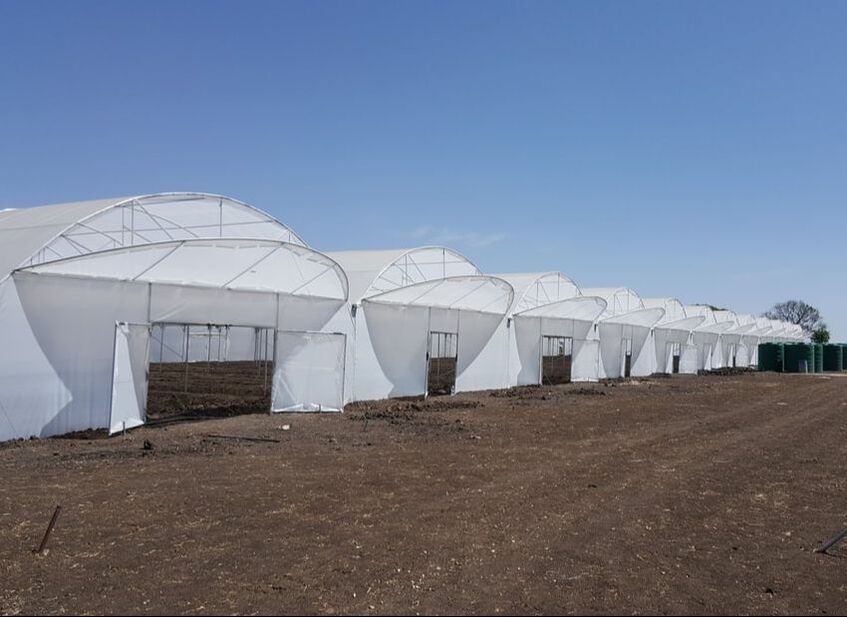
Background on Tunnel Farming
A farming tunnel is a structure, usually semi-circular, square or elongated, made of steel pipes and covered in polyethylene plastic in which crops can be grown, either directly in the soil or in containers with a soil-less growing medium (also known as hydroponics).
The interior of the tunnel heats up because incoming solar radiation from the sun warms the soil, plants and structures in the tunnel faster than heat can escape the structure. Tunnels thus provide a higher temperature and/or humidity than that which is naturally found in the environment.
Various crops can be grown successfully in tunnels such as tomatoes, cucumbers, sweet peppers, lettuce, spinach, cabbage, cauliflower, strawberries and even flowers.
Why choose tunnel farming?
Compared to open field farming, tunnel farming has many advantages and benefits. Listed below are some of the main factors.
Climate Control
Because tunnels are covered in plastic, they provide a controlled growing environment or climate. The main concept of growing under climate control is to create optimal growing conditions by controlling temperature (through ventilation, heating and cooling systems), humidity (through irrigation) and light (through plastic coverage). Tunnels also provide protection against the elements and extreme weather, like frost, heat, wind and hail.
Increased Crop Yield
A greater number of plants can be planted in a tunnel than on open land, because of factors such as space needed for tractors, harvesters etc. This means that even small spaces can be utilized for tunnel farming. Additionally to this, the protected environment created by the tunnel a higher yield can be produced.
Saves Water
Irrigation in the tunnels can be strictly controlled and applied only when and where it is needed, resulting in a lot less water wastage. This in turn means a financial saving for the farmer and also increases the sustainability of the crop. Because South Africa often experiences serious drought, farmers are at great risk of losing their entire crop. Farming in a tunnel means being able to control irrigation even in times of drought, and can be the difference between crop failure and success.
Protects against Pests and Diseases
The controlled environment of a tunnel provides protection against many natural pests such as birds and insects. Diseases and fungus are are also minimized by controlling moisture levels in the tunnel and by spraying certain pesticides (herbicide, fungicide and insecticide).
Extends Growing Season
Perhaps one of the most important advantages of tunnel farming is that cops can be grown out of season. For example in some parts of the country tomatoes can only be grown in the warmer months. By planting in tunnels, extreme temperatures can be controlled. A farmer can thus plant tomatoes all year round, or at least for the largest part of the year. Being able to provide produce to the markets out of season means getting higher prices.
Substrate Quality
The substrate is the substance from which an organism (or plant) obtains its nourishment. In the case of tunnel farming, the substrate can either be the soil or some soil-less medium such as pine sawdust. The quality of the substrate can be controlled by fertilization, which can increase plant growth and productivity.
Saves cost on Fertilisers
As with water, fertilizers can be better controlled in a setup. The fertilizer is mixed into the irrigation system allowing greater accuracy in dosage and distribution.
In short, the combined benefits of these factors is ultimately healthier plants, higher productivity and better crop quality. By being able to control some of the risk factors associated with farming, tunnel farming can be more financially viable than other conventional methods, if managed properly.
What makes a Dicla tunnel structure special?
Dicla’s quality tunnel structure has always been our pride. Not only do we constantly strive to improve the design and working of our tunnels, but the initial design, having been developed for the South African market, has proven itself time and time again!
Quite a number of factors should be considered when choosing your tunnel supplier, including, but not limited to:
Steel Quality
The first shortcut anyone would be tempted to take when trying to save costs on tunnel farming, is using sub-standard, lesser quality steel. We’ve seen numerous tunnels fail because of the materials used, and pledged to never form part of these statistics.
Dicla tunnels are constructed solely from a 2mm thick (as opposed to the popular 1.6mm thick) round tube. All tube used is strictly Pre-Galvanized and of the highest quality possible. No perforated, sub-quality, reject or painted steel is ever used in our tunnels
Designed for Strength
Additionally to using only the highest quality, strong steel, Dicla tunnels are designed in such a way that they can resist wind strengths to an extreme level. Offering a lot of internal, structural support, the already strong design can be improved by adding Extra Wind Support (see tunnel options) and a full cover net (highly recommended in windy areas). The Dicla tunnel with Wind Support can withstand winds of up to 90km per hour.
Hinges
Dicla designed and manufactures a custom, Heavy Duty hinges for use on ventilation flaps and doors. These hinges last for the whole lifespan of the tunnel, as opposed to butterfly hinges that break often.
Doors
Dicla’s Tunnel Door is designed in such a way that it provides easy access, not only to people, but also for small tractors and implements, ensuring high workability. Despite this, the design is durable and long-lasting.
Ventilation
Not only does the Dicla tunnel offer the perfect design for optimal ventilation by combining the perfect length with permanent Ventilation flaps as a standard part of the design, but we also offer the fairly new, very cost-effective design now known as roll-up sides. Working similar to the designs on small-scale poultry structures, Dicla’s Roll-Up sides offer a lot of extra ventilation for tunnels, which comes in especially handy in the warmer areas.
Innovative Service
Having been in the market for decades, Dicla is in the position to offer innovative solutions to problems such as space, heating and cooling, weather and so much more. Our salespeople are equipped to assist with any issues raised.
Quality Products
We stand behind what we supply. From the plastic on the floor to the plastic on the roof, and everything in between, Dicla supplies the highest quality products to offer our clients a turn-key solution.
Training
Dicla offers training solutions to all farmers, small or big. Rooted in well over 20 years of experience, these hands-on courses offer the farmer a solid foundation for a bright future. Read more about our courses here.

